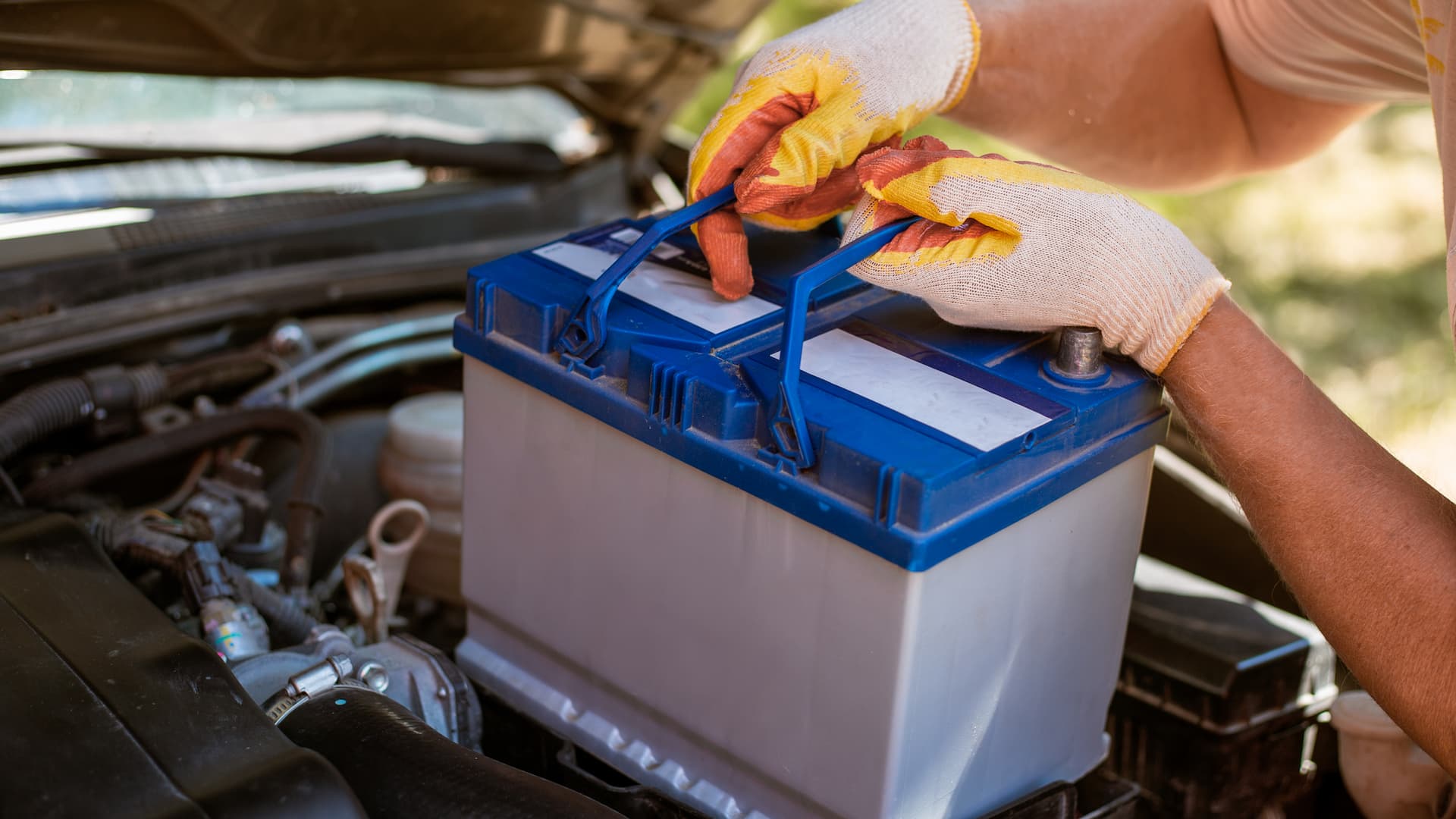A car battery is essential for powering your vehicle’s electrical components, and a dead or dying battery can leave you stranded at the most inconvenient times. Recognizing the early warning signs of a failing battery can help you address the issue before it escalates into a more significant problem.
Whether it’s due to age, extreme weather conditions, or frequent short trips, car batteries can lose their ability to hold a charge over time. By being vigilant and aware of the symptoms of a dying battery, you can ensure that your car remains reliable and ready to go when you need it. Here are six signs that your car battery may be about to die.
1. Slow Engine Crank
One of the most common signs of a dying car battery is a slow engine crank. When you turn the key in the ignition, the engine should start smoothly and quickly. If you notice that the engine is cranking more slowly than usual or taking longer to start, it could be an indication that your battery is losing its charge. The slow cranking is a result of the battery not providing enough power to turn the engine over effectively.
Several factors can contribute to a slow engine crank, including a weak battery, corroded battery terminals, or a faulty alternator. It’s essential to address this issue promptly, as continued slow cranking can eventually lead to a completely dead battery, leaving you stranded.
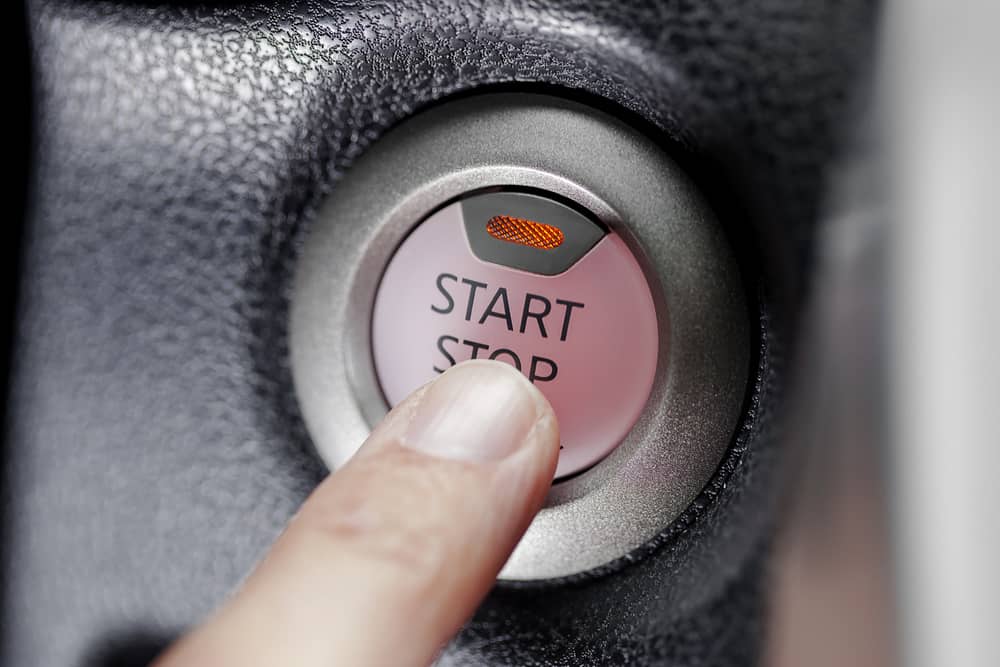
To diagnose the problem, have your battery and charging system tested by a professional. They can determine whether the battery needs to be replaced or if there is an issue with the alternator or other electrical components. Regularly checking and maintaining your battery can help prevent slow engine cranks and ensure that your vehicle starts reliably every time.
2. Dim Headlights and Electrical Issues
Another sign that your car battery may be about to die is dim headlights and other electrical issues. The battery powers the vehicle’s electrical components, including the headlights, dashboard lights, radio, and power windows. If you notice that your headlights are dimmer than usual or that other electrical systems are malfunctioning, it could be a sign that the battery is struggling to provide enough power.
In addition to dim headlights, you may experience flickering dashboard lights, slow power windows, or issues with the radio and other electronic devices. These symptoms indicate that the battery is not delivering a consistent voltage to the electrical system, which can affect the performance of various components.

To address these issues, have your battery and electrical system inspected by a professional. They can check for any signs of corrosion, loose connections, or other issues that may be affecting the battery’s performance. Replacing a failing battery or addressing any electrical problems promptly can help prevent further issues and ensure that your vehicle’s electrical systems function properly.
3. Frequent Jump Starts Needed
If you find yourself needing to jump-start your car frequently, it’s a clear sign that your battery may be nearing the end of its life. While occasional jump starts due to leaving the lights on or other isolated incidents are normal, needing frequent jump starts indicates a more serious issue with the battery’s ability to hold a charge.
Frequent jump starts can be caused by a variety of factors, including an old or worn-out battery, a faulty alternator, or a parasitic drain on the battery from an electrical component that continues to draw power even when the vehicle is off.
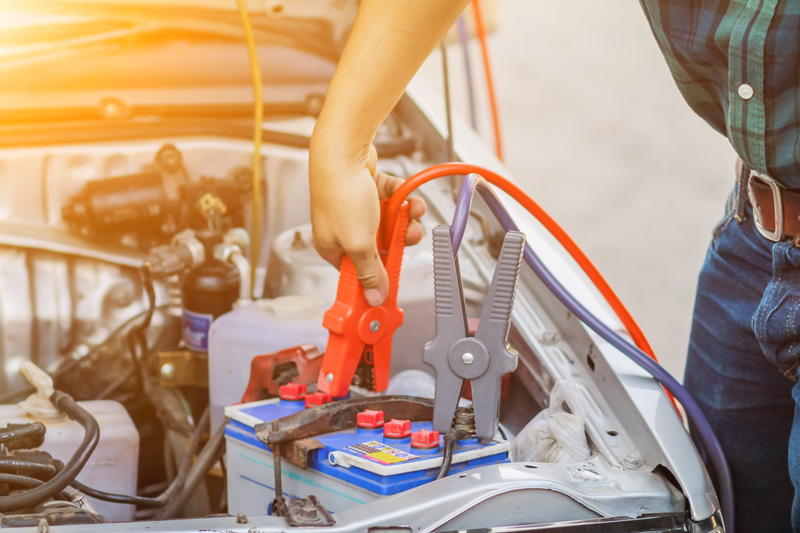
It’s essential to identify the root cause of the problem to prevent further damage to the battery and other electrical components. Have your battery tested to determine its condition and whether it needs to be replaced.
Additionally, have a professional inspect your vehicle’s charging system and electrical components to identify any issues that may be causing the battery to drain. Addressing these problems can help you avoid the inconvenience of frequent jump starts and ensure that your vehicle remains reliable.
4. Swollen or Bloated Battery Case
A swollen or bloated battery case is a visible sign that your car battery may be failing. This condition occurs when the battery is exposed to extreme temperatures or when there is a buildup of gases inside the battery due to overcharging or internal damage.
A swollen battery case can compromise the integrity of the battery and reduce its ability to hold a charge. If you notice that your battery case is swollen or misshapen, it’s essential to address the issue immediately.
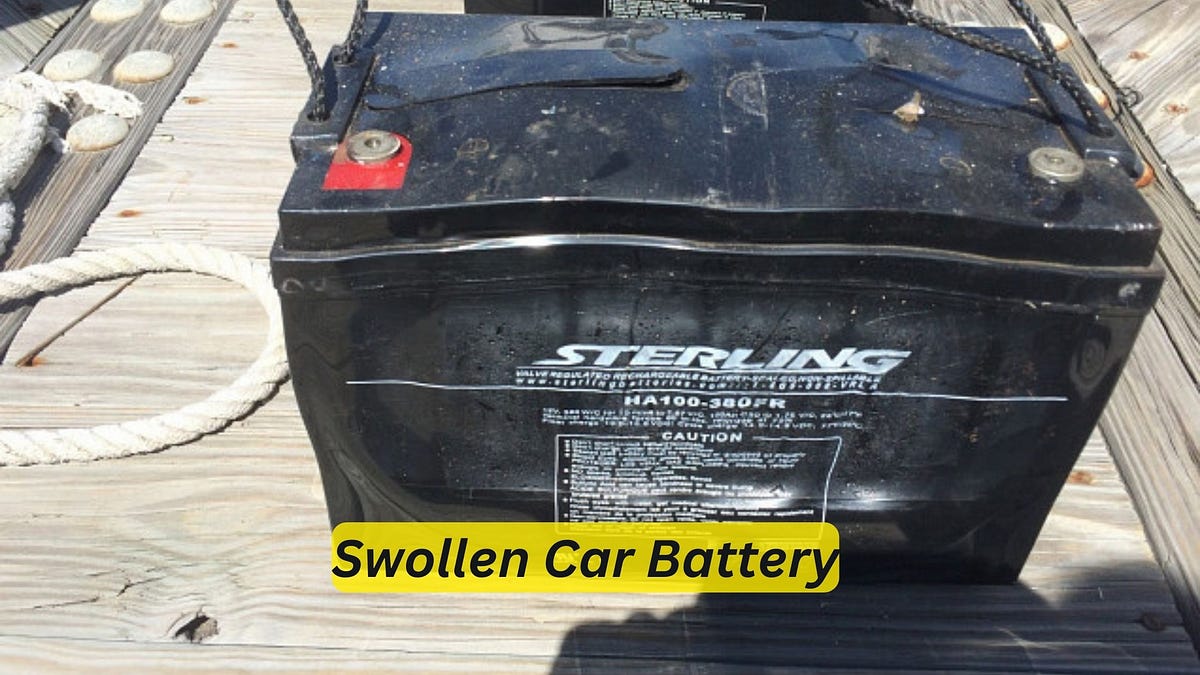
Continuing to use a swollen battery can lead to leaks, cracks, or even a complete battery failure. Additionally, a swollen battery can pose a safety hazard, as it may be at risk of leaking harmful chemicals. Have your battery inspected by a professional to determine the cause of the swelling and whether the battery needs to be replaced.
In many cases, a swollen battery will need to be replaced to ensure the safety and reliability of your vehicle. Regularly checking the condition of your battery and maintaining proper charging practices can help prevent swelling and extend the life of your battery.
5. Foul Smell from the Battery
A foul smell coming from the battery is another indication that it may be failing. If you detect a strong odor of rotten eggs or sulfur coming from under the hood, it could be a sign of a leaking battery. This smell is caused by the release of hydrogen sulfide gas, which occurs when the battery’s internal components break down or when there is a buildup of pressure inside the battery.
A leaking battery can be hazardous, as the sulfuric acid inside the battery can cause damage to surrounding components and pose a risk of injury. If you notice a foul smell, it’s essential to take action immediately to address the issue and prevent further damage.
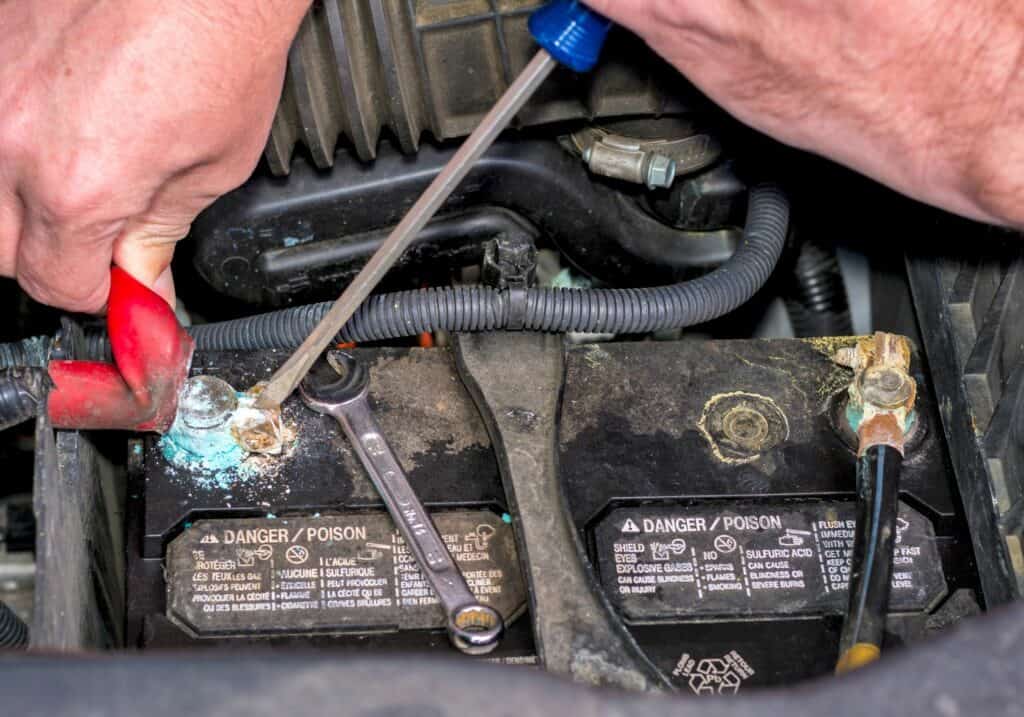
Have your battery inspected by a professional to determine the source of the smell and whether the battery needs to be replaced. In many cases, a leaking battery will need to be replaced to ensure the safety and reliability of your vehicle. Regularly checking for signs of leaks or other issues can help prevent problems and extend the life of your battery.
6. Old Age
The age of your car battery is a significant factor in its health and performance. Most car batteries have a lifespan of three to five years, depending on factors such as driving habits, climate, and maintenance practices. As the battery ages, its ability to hold a charge and deliver power decreases, making it more susceptible to failure.
If your battery is approaching or has exceeded the three to five-year mark, it’s a good idea to have it tested regularly to assess its condition. Even if you haven’t noticed any of the other signs of a dying battery, an old battery may still be at risk of failing unexpectedly.
Replacing an old battery before it fails can help prevent the inconvenience and potential danger of a dead battery, especially in extreme weather conditions. Keep track of your battery’s age and consider proactive replacement to ensure that your vehicle remains reliable and ready to go when you need it.
By being aware of these six signs, you can take proactive steps to address any issues with your car battery and ensure that your vehicle remains dependable and safe. Regular maintenance and monitoring of your battery’s condition can help prevent unexpected failures and extend the life of your battery.

